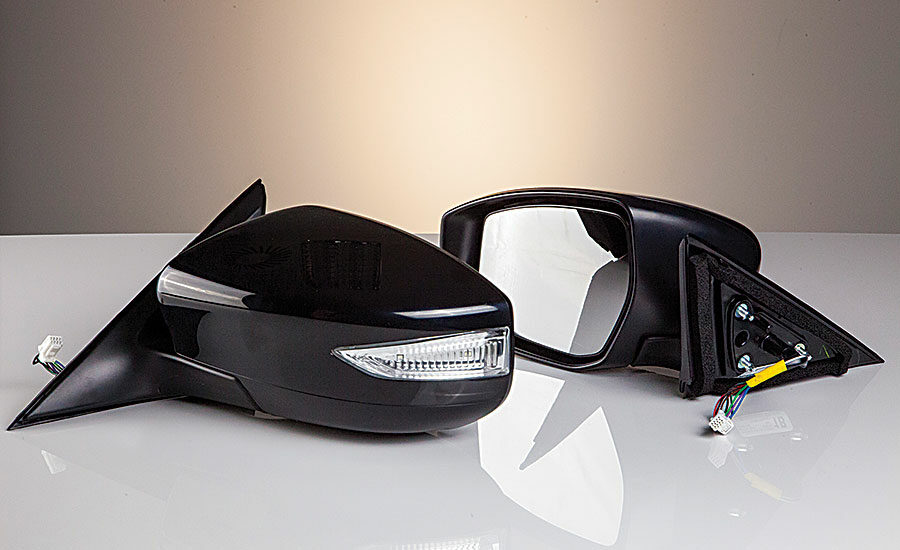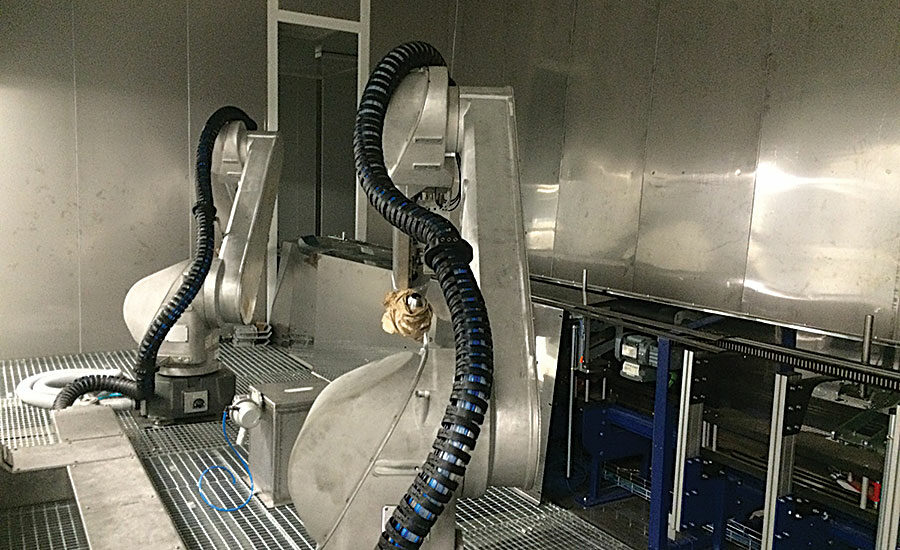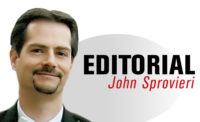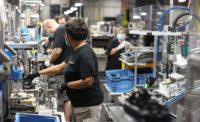New Assembly Plant Manufactures Rearview Mirrors

Ficosa’s new, state-of-the-art assembly plant in Cookeville, TN, will produce exterior rearview mirrors for automotive OEMs across the country. Photo courtesy Ficosa

Ficosa’s new assembly plant is equipped with a fully robotized paint line. Photo courtesy Ficosa


One way for a manufacturer to enter a new market is through acquisition. However, one downside of the strategy is that the manufacturing assets you acquire do not always mesh perfectly with how you like to do things.
Such was the case with Ficosa International SA, a global automotive supplier based in Barcelona, Spain. To gain a bigger slice of the burgeoning North American auto market, Ficosa acquired three U.S. parts suppliers in 2008, 2010 and 2011. The company went from having no U.S. factories, to having three.
“One of the challenges for us was that…all our manufacturing assets were products of the acquisitions,” says Fred Zicard, vice president of Ficosa North America. “It was a mishmash of everyone else’s manufacturing, and none of it was really consistent with how we manufacture.
“We needed to consolidate. We’re here to stay, and we wanted a modern, competitive facility that was consistent with our manufacturing processes.”
Thus, in May 2015, Ficosa announced that it would close an existing facility in Crossville, TN, and build a new, larger, state-of-the-art assembly plant in nearby Cookeville, TN. Thirteen months later, Ficosa began the process of filling hundreds of manufacturing jobs at the newly completed 270,000-square-foot factory, which cost $50 million to build and equip.
Most of the existing 500-member workforce from Crossville are moving to the Cookeville plant, but there will also be some 400 new jobs to fill.
The main product produced at the new plant will be exterior rearview mirrors. The company currently supplies mirrors to Ford, Fiat Chrysler, General Motors, Volkswagen and Nissan. The new facility will have the capacity to produce 4.5 million units per year.
The facility “will be the most vertically integrated mirror manufacturing plant in the world,” boasts Zicard. The factory will make its own plastic parts with some 40 injection-molding presses, ranging in size from 150 to 600 tons. It will make its own aluminum parts, using four fully automated die-casting machines. The facility will even have a fully robotized paint line, a circuit board assembly line, and a clean room (for assembling turn signals that are integrated with a mirror).
Ficosa previously outsourced many of the parts it now produces in-house. Becoming more vertically integrated will enable the company to repatriate jobs, shorten the supply chain, reduce inventories, and maintain better control over quality.
“Sourcing parts from remote parts of the world drives higher inventory levels and freight costs,” says Zicard. “If there’s a quality problem, you’ve got inventory at your plant, inventory on the water, and inventory at the supplier. There’s an enormous amount of material that may need to be reworked or even scrapped.
“That’s not the case if you’re controlling production yourself. You’re producing directly to line demand with maybe a little buffer stock. If you have a quality problem, you’re talking about 100 pieces instead of 100,000.”
Most of the plant will be dedicated to assembly lines for 17 mirror models. Some lines are small and set up for manual assembly. Others have a high degree of automation. For example, on one line, a pick-and-place unit installs an electromechanical actuator (for adjusting the mirror position) inside a plastic shell. A fully automatic screwdriver then installs three screws to secure it in place.
Looking for a reprint of this article?
From high-res PDFs to custom plaques, order your copy today!








